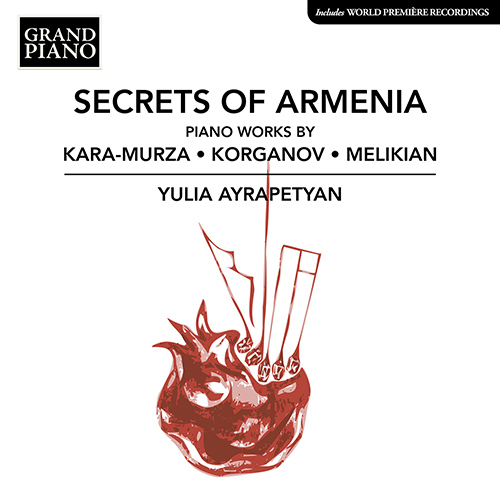
Kristapor Kara-Murza (1853 - 1902)
Christophor (Khachatur) Makarovich Kara-Murza (Arm. Քրիստափոր Կարա-Մուրզա; born 2 March 1853 in Karasubazar (now Bilohirsk), Crimea; died 9 April 1902 in Tiflis (now Tbilisi), Georgia, studied piano, flute and music theory as a child. In 1882 he moved to Transcaucasia, where he visited a large number of Armenian villages and towns, collecting the music of several hundred folk songs and dances. In 1885 he began extensive and active concert activity. As a choral conductor, he organised hundreds of concerts, popularising polyphonic singing and striving to introduce it into the lives of the Armenian public. He created more than 90 large folk choirs in the cities of the Caucasus and Southern Russia, ranging from 40 to 150 participants each. Many of the participants of the choirs created by Kara-Murza became famous professional singers, such as Leon Isetsky, Nerses Shakhlamian, Beglar Amirjanian and Tsovak, who then continued Kara-Murza’s educational initiative after his untimely death. Kara-Murza wrote numerous songs and romances based on the words of Armenian poets, as well as instrumental pieces, music for dramatic performances and the unfinished opera Shushan. He also set music to Mikael Nalbandian’s The Song of the Italian Girl, which became the anthem of the First and Third Republics of Armenia. In addition, Kara-Murza wrote a large number of articles as a music critic, in which he touched upon important musical and aesthetic issues for that period of time, and musicological reviews of various concerts, opera performances and the creative activities of contemporary musicians, among other topics. For 17 years, from 1885 until his premature death in 1902, Kara-Murza managed to give around 248 concerts and write 320 songs. He often gave concerts in Tiflis, Baku, Alexandropol (Gyumri), Yerevan, Vagharshapat (Etchmiadzin), Astrakhan, Crimea, New Nakhichevan, Constantinople and other places, alongside organising choirs.
During his concert tours, the composer actively promoted folk songs, laid the foundation of Armenian concert culture and thereby gave music a socio-political influential force and turned it into a powerful incentive for the artistic education of the people. The greatest value in all the versatile musical and educational activities of Kara-Murza for the development of Armenian musical culture lies in his ascetic work associated with the preparation of choral arrangement collections of Armenian folk music.


 Grand Piano has gained a reputation for producing high quality recordings of rare keyboard gems. Dedicated to the exploration of undiscovered piano repertoire, the label specialises in complete cycles of piano works by many lesser-known composers, whose output might otherwise have remained unknown and unrecorded.
Grand Piano has gained a reputation for producing high quality recordings of rare keyboard gems. Dedicated to the exploration of undiscovered piano repertoire, the label specialises in complete cycles of piano works by many lesser-known composers, whose output might otherwise have remained unknown and unrecorded.






